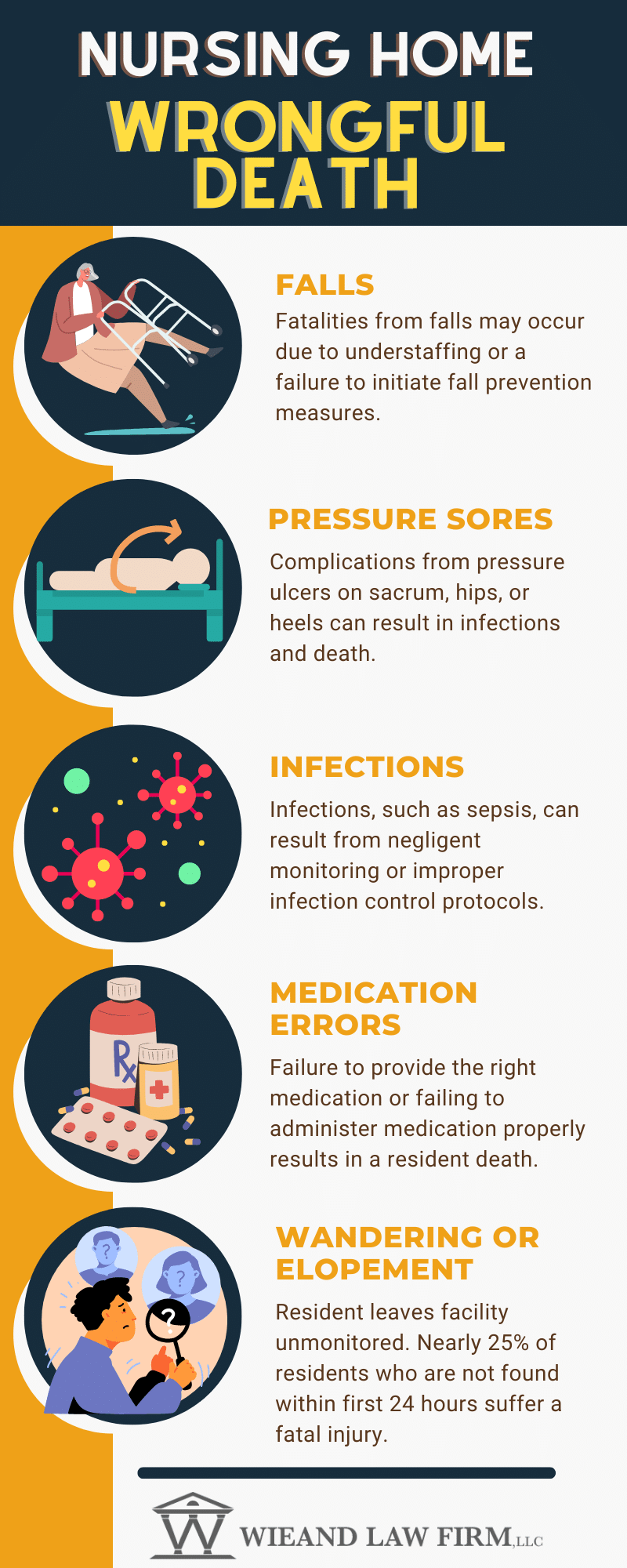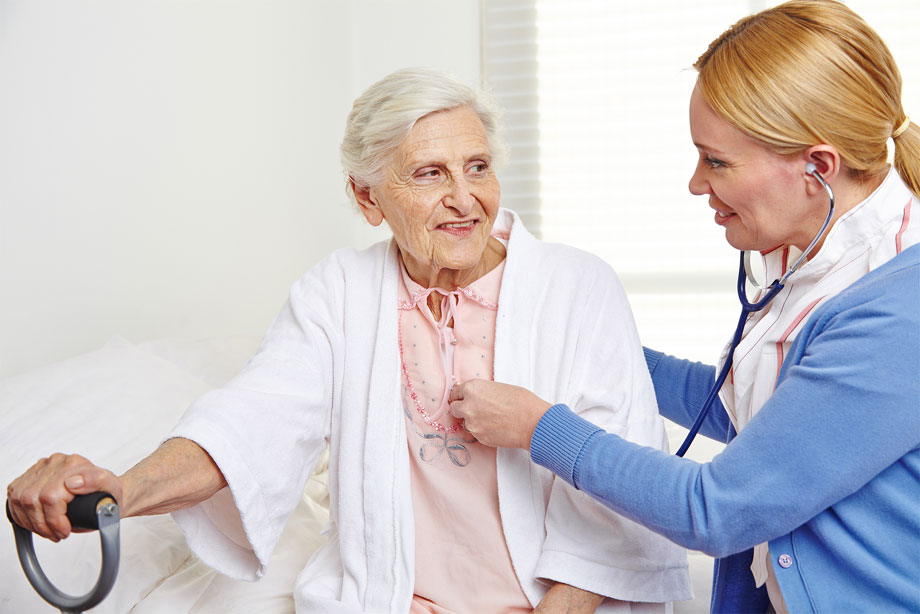 When you place your mother, father, grandmother, or grandfather into a nursing home in Pennsylvania or New Jersey, you do so with the expectation that the facility will take good care of your loved one’s medical conditions and health needs. Tragically, all too many families lose elderly loved ones to the very people who were entrusted with the victim’s care and well-being.
When you place your mother, father, grandmother, or grandfather into a nursing home in Pennsylvania or New Jersey, you do so with the expectation that the facility will take good care of your loved one’s medical conditions and health needs. Tragically, all too many families lose elderly loved ones to the very people who were entrusted with the victim’s care and well-being.
Nothing can ever make up for the death of a beloved husband, wife, parent, or another close relative. However, as the spouse or child of a victim who died from nursing home abuse, your family has a right to seek answers, financial compensation, and most importantly, justice for the wrongdoing against you. Whenever you feel ready to talk about the loss of your loved one, you are urged to contact the Wieand Law Firm, LLC at (215) 666-7777 for a free and completely confidential legal consultation.
Being told that your parent or grandparent has died while in the care of a nursing home is a completely shocking and traumatic experience. After the initial grief and bewilderment, you may begin to wonder how this could have happened, who is responsible, and what sort of legal recourse you have as a surviving relative of the wrongful death victim. As you go through this very trying time, the place to start is by simply getting a grasp of what a wrongful death claim is.
In short, wrongful death is a type of civil (non-criminal) case that is filed when a person dies from preventable injuries or illness that result from the negligent or intentional conduct of another person or entity, such as a nursing home employee or facility. In New Jersey and Pennsylvania, wrongful death lawsuits can be filed in cases involving nursing home neglect or abuse, as well as other situations involving elder abuse or nursing home misconduct which has resulted in an avoidable death.
In New Jersey or Pennsylvania nursing home death cases, the victim’s family typically brings a lawsuit against the nursing home facility for negligence or abuse. If the facility is willing to make a reasonable settlement offer, it may be an option to settle the case outside of court, which eliminates the need to go to trial. In other situations, litigation is necessary to protect the family’s interests. A skilled attorney like Brent Wieand will analyze possible legal strategies to determine what sort of approach is -suited to the goal of making a recovery for your family.

Wrongful death in nursing homes may occur due to more than one factor or conditions. In some cases, the offender is a staff member who willfully abused a resident through actions such as hitting, kicking, or intentionally neglecting him or her. Wrongful death can also occur as a result of accidental neglect by staff members and/or doctors who were understaffed, inexperienced, or otherwise careless and failed to provide the proper standard of care.
In many wrongful death cases involving nursing homes or assisted living facilities, the resident’s death does not occur immediately after the adverse (fatal) event. It is more common for an initially treatable injury or affliction to worsen with time, causing effects that take a substantial toll on the elderly patient’s health until ultimately causing a preventable death weeks or months later.
To provide a common example, approximately 4% of people die after sustaining a hip fracture (pelvic fracture) because of:
In addition to increasing the risk of severe bedsores, immobility can also cause deep vein thrombosis (blood clots) to form in the leg veins of residents. In turn, clotting can lead to a life-threatening complication called pulmonary embolism, which occurs when an artery in the lungs becomes blocked. Pneumonia, a common infection which can have lethal complications for seniors, is also common in immobile patients.
In other cases, deaths are caused by traumatic injuries, such as head injuries resulting from accidental falls. A nursing home slip and fall accident can be caused by factors like loose handrails or support rails, clutter on the floor, or carpets that are improperly affixed to the flooring beneath. Falls in nursing homes can also occur when a doctor or other staff member fails to help a resident stand, sit, or move from one piece of furniture to another.
Wrongful death can also occur from:
No matter what type of illness or injury led to the victim’s death, anyone who believes that a loved one’s death was caused by neglect or abuse should not hesitate to contact a skilled nursing home abuse lawyer, like Brent Wieand of the Wieand Law Firm, LLC. Brent’s goal is to help get justice for victims and their families by seeking financial compensation from the offending home or caregivers.
A lawsuit for wrongful death may only be brought by the personal representative of the decedent’s estate. Every state, including New Jersey and Pennsylvania, has its own civil wrongful death statute, which sets forth that state’s procedure for filing a wrongful death action (lawsuit). The damage awards (compensation) from these actions belong to the estate and may pass to different parties as directed by the decedent’s will or statutory heirs.
In wrongful death lawsuits, those allowed to sue are called the “real parties in interest” and may include:
The law varies from state to state as to who may bring a suit, which is one of the reasons it is so important that your family has skilled legal representation when approaching this complex area of the law. Lawsuits are also subject to strict deadlines, which your attorney will carefully adhere to and plan for while the case is being prepared.
If you feel that an elderly loved one has died due to neglectful nursing home care or abuse in Pennsylvania or New Jersey, it is important to consult with an experienced nursing home abuse lawyer promptly. Any legal team will need sufficient time to gather the decedent’s medical records, investigate the claim, and consult with medical experts before filing a lawsuit. There are strict statutes of limitations that limit the time to bring a wrongful death claim in New Jersey or Pennsylvania, so it is important to consult an attorney immediately upon suspicion of foul play or neglect.
To start talking about your family’s possible legal options in a free and completely confidential consultation, call the Wieand Law Firm, LLC at (215) 666-7777 as soon as possible. Brent Wieand handles claims and lawsuits in locations throughout New Jersey and Pennsylvania, including but not limited to Philadelphia, Allentown, Reading, Atlantic City, Camden, and Trenton.
Review: 5/5
★ ★ ★ ★ ★
“It is great having an attorney who always gets back to you immediately, answers any and all questions (and I had many), and who honestly cares about his client. He provided me with the help and the experienced council that I needed in a tough situation. I strongly recommend him to anyone looking for a personal injury lawyer. ”
-Pat Millham
